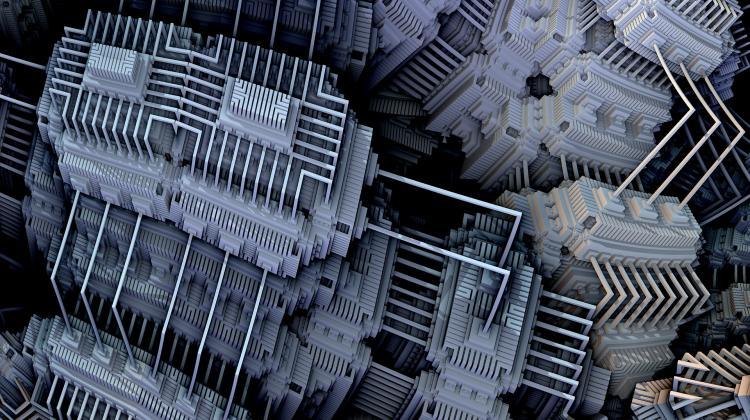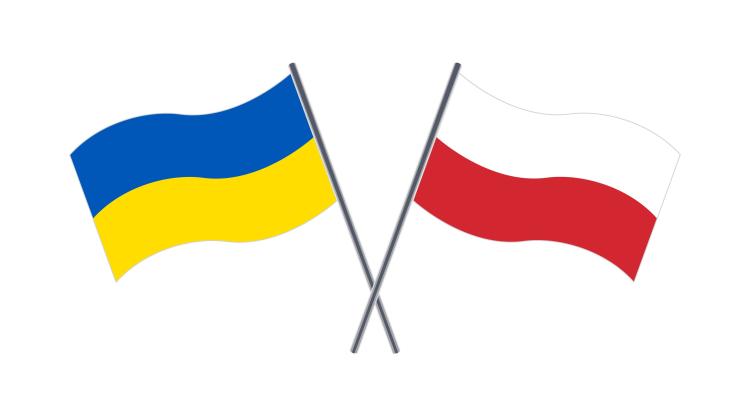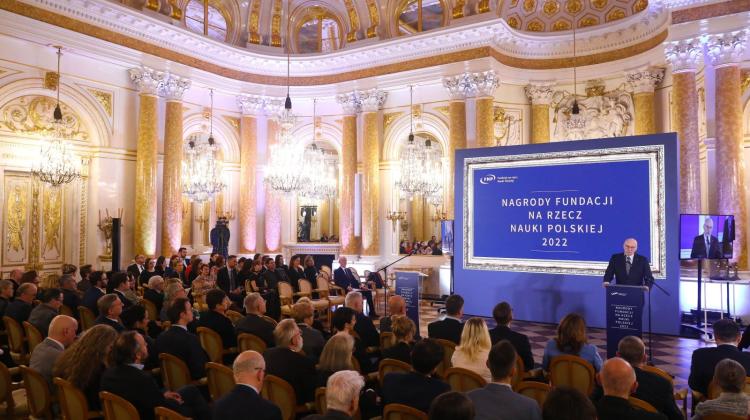Polish contribution to the construction of a quantum computer
 Source: Foundation for Polish Science
Source: Foundation for Polish Science
Quantum computer will allow to instantly find the information you need in huge amounts of data and enable complex simulations. Scientists from around the world are working on such a device. In a project led by Prof. Marka Kuś, Polish physicists and IT specialists optimise the calculations performed by qubits, the basic units of the quantum computer.
Unlike traditional computers, a quantum computer will be able to perform many operations at the same time, which will significantly reduce the time of solving difficult calculation problems, and thus allow to attempt to solve them at all. According to Prof. Marek Kuś, this technology will certainly find application in life sciences, medicine and the pharmaceutical industry, where it will be used to discover new drugs. Another sector awaiting the creation of quantum computers is banking and the entire financial sector, which will benefit from the possibility of perfect simulations of the stock exchange`s behaviour.
In today`s computers, data is stored in a binary system, that is, sequences of bits, each of which is in one of two states: 0 or 1. Groups of such bits are transferred between different components of one computer or between different computers in a network. A classic computer performs operations in a specific order, one by one, and is unable to perform several operations simultaneously. The more complex the task, the longer it takes to search for solutions, and the computing power of classical computers is simply insufficient to solve many of today`s problems.
SECONDS INSTEAD OF YEARS
In quantum computers, information is stored in qubits (quantum bits). Characterisation and optimisation of quantum calculations performed by qubits is a task of Polish scientists. They received an over PLN 17 million grant from the Foundation for Polish Science for the implementation of the TEM-NET project. The project leader is the Center for Theoretical Physics PAS in Warsaw. The scientific consortium members will also include the Faculty of Physics, Astronomy and Applied Computer Science of the Jagiellonian University and the Institute of Theoretical and Applied Informatics PAS in Gliwice.
"Quantum computers will solve complex problems in many fields of science and industry much faster and more efficiently than the best traditional computers. It will take them a few seconds to perform calculations that would take up to several years with a traditional computer" - says Prof. Marek Kuś.
He explains that qubit differs from the regular bit in that it has no fixed value of 0 or 1, but according to the principles of quantum mechanics it is in an intermediate state, called the superposition. This means that it is in the state of 0 and in state 1 at the same time. Therefore, qubit carries much more information than a zero-one bit. In addition, qubits can be entangled with each other: two qubits have four tangled values, three qubits - eight values, and so on. The states of individual qubits can not be treated as independent, because a change of one affects all others. Thanks to the entanglement of qubits, a quantum computer can perform calculations at all values simultaneously, which gives it a huge computing power. The matter is complicated due to the need to "read" the results of such a calculation, which inevitably destroys the quantum state.
FAST BUT FRAGILE
"At this point we can not say when a quantum computer will be created. We are still facing many serious limitations and it is unclear when they will be overcome" - emphasises Prof. Marek Kuś.
Difficulties are connected to the fact that qubits are very unstable and extremely sensitive to the influence of the environment. Even the smallest temperature, noise, pressure or magnetic field fluctuations can knock qubits out of the state of interdependent superpositions and lead to the phenomenon physicists call decoherence. If qubits do not maintain the state of superposition, there are errors in calculations. The more qubits are connected, the more such errors will be generated.
Currently, qubits can maintain their quantum state only for about 100 microseconds before decoherence occurs. For this reason, quantum computers must be in a specially prepared environment. They require cooling at a temperature close to absolute zero and being placed in a high vacuum, under pressure 10 billion times lower than atmospheric pressure.
"This means that quantum computers will appear in our homes or offices anytime soon. In the near future, we can expect devices built of a few imperfect qubits. Our project aims to characterize the computing power and explore the possible practical applications of such devices. We will focus not on the construction of the device itself, but on testing its software and characterizing the algorithms that will optimise its operation" - the professor says.
Four cooperating research groups are working on novel aspects of quantum computing: quantum machine learning, control of complex quantum systems, quantum error correction and the problem of identifying resources responsible for the so-called quantum acceleration.
PAP - Science in Poland
kol/ agt/ kap/
tr. RL
Przed dodaniem komentarza prosimy o zapoznanie z Regulaminem forum serwisu Nauka w Polsce.


















